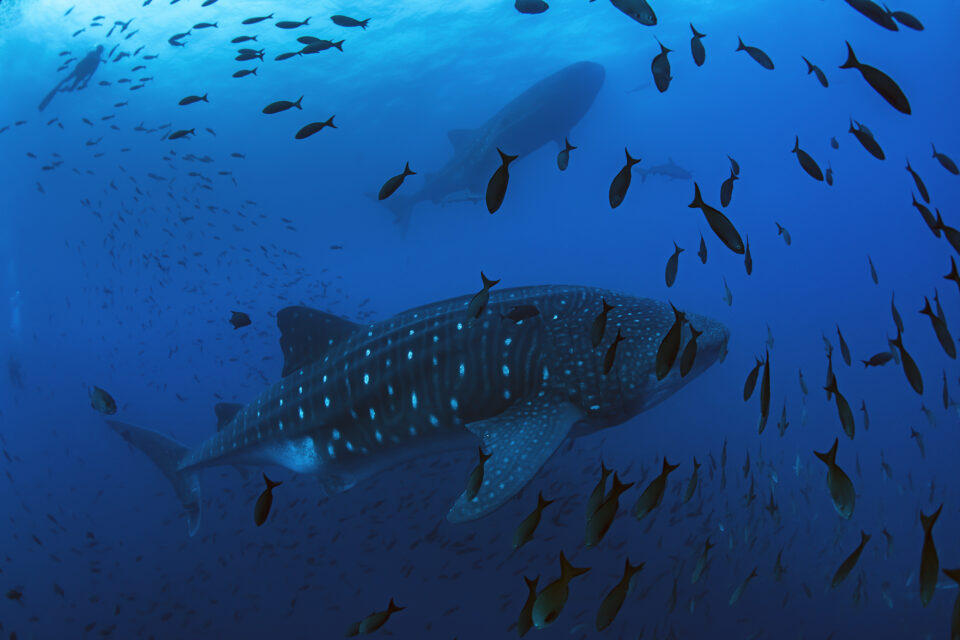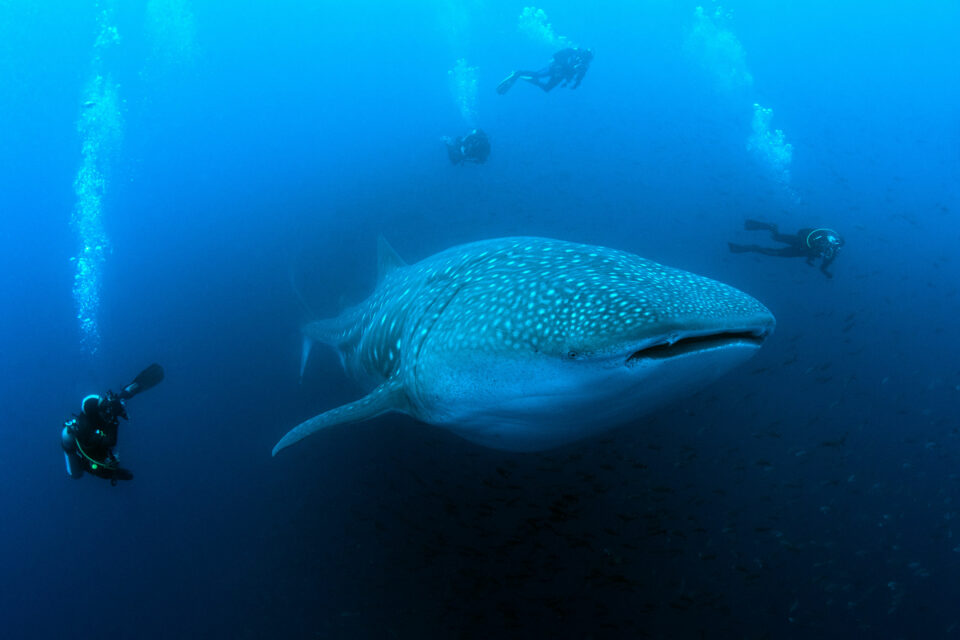
Galapagos Whale Shark Project Update
Whale sharks are under threat. This year through the Galapagos Whale Shark Project we learnt there may be another threat to these ocean giants – climate change.
Relatively little is still known about the movements and biology of whale sharks, which makes it hard for us to protect them effectively. Over 90% of the individuals sighted in Galapagos are adult females, which are understudied compared to males, giving us a unique opportunity to learn more about them through the Galapagos Whale Shark Project.
Whale sharks, like many shark species, are under threat. They are listed as Endangered on the IUCN Red List. Even though they are protected from international trade by CITES, their populations are declining as they are subject to incidental bycatch by fishing vessels and are illegally targeted by others for their fins and oil. They are also susceptible to ocean plastic pollution and vessel strikes. This year we learnt there may be another threat to these ocean giants – climate change.

Galapagos Whale Shark Project August 2021 expedition
During the Galapagos Whale Shark Project (GWSP) August expedition to Darwin’s Arch in the north of the Galapagos Marine Reserve, the team deployed four fin-mounted tags on three adult female whale sharks and one juvenile female. One of the female whale sharks was also fitted with a fin-mounted camera which showed the female whale shark remained in relatively shallow waters <100m but making repeated slow dives before swimming more actively back to the surface. There were many interactions between this whale shark and other species observed, including silky sharks repeatedly rubbing themselves against the whale shark. This behaviour has been observed occasionally by divers and is believed to be a cleaning strategy for the removal of parasites on the skin by silky sharks.

All four satellites tags were transmitted successfully after the expedition. Below you can see their tracks recorded until 23 October 2021.



Satellite tag #220362 was of an 11-meter female whale shark tagged by the team on 29 August 2021 has sent signals from Manta, an Ecuadorian coastal city. Find out more here.

Galapagos Whale Shark Project September 2021 expedition
During this trip, the Galapagos Whale Shark Project team deployed four more fin-mount satellite tags on four adult female whale sharks, which are transmitting successfully to date.




What have we learned from the Galapagos Whale Shark Project this year?
The frequency of whale shark sightings has been the lowest in the 11 years since the Galapagos Whale Shark Project began, except in 2017 which was a “La Niña” year with abnormally low sea surface temperatures.
Whale sharks are usually sighted between June – November at Darwin Arch and Darwin island most years. Climatic events such as the superheating event of the El Niño Southern Oscillation and the cooler counter-event, La Niña, and subsequent hot and cold abnormal sea surface temperatures might affect the seasonal frequency and number of sightings of whale sharks in Galapagos.
According to the National Oceanic and Atmospheric Administration (NOAA), there is a 70-80% chance of the La Niña event during the Northern Hemisphere winter 2021-2022.
The adverse weather conditions this season also meant that two of the three fin-mounted cameras couldn’t be recovered. With the divers facing very challenging conditions with strong currents, poor visibility and powerful surges, certain research elements, such as blood tests, were attempted unsuccessfully.
With climate change, it is believed that the El Niño and La Niña events will occur with higher frequencies and strength likely to affect the frequency with which whale sharks are sighted in known aggregation locations. The impact of climate change on this species is still uncertain and so continued research is vital to better understand shark movements in and around the Galapagos Marine Reserve.
How you can help?
You can help protect sharks and the ocean around Galapagos with one of Galapagos adoptions. Choose from our scalloped hammerhead shark adoption, or our new Marti the Hammerhead Shark adoption which is the perfect gift for younger children.
Related articles

Ocean Protection Webinar 2023

Tagging a new constellation of whale sharks


